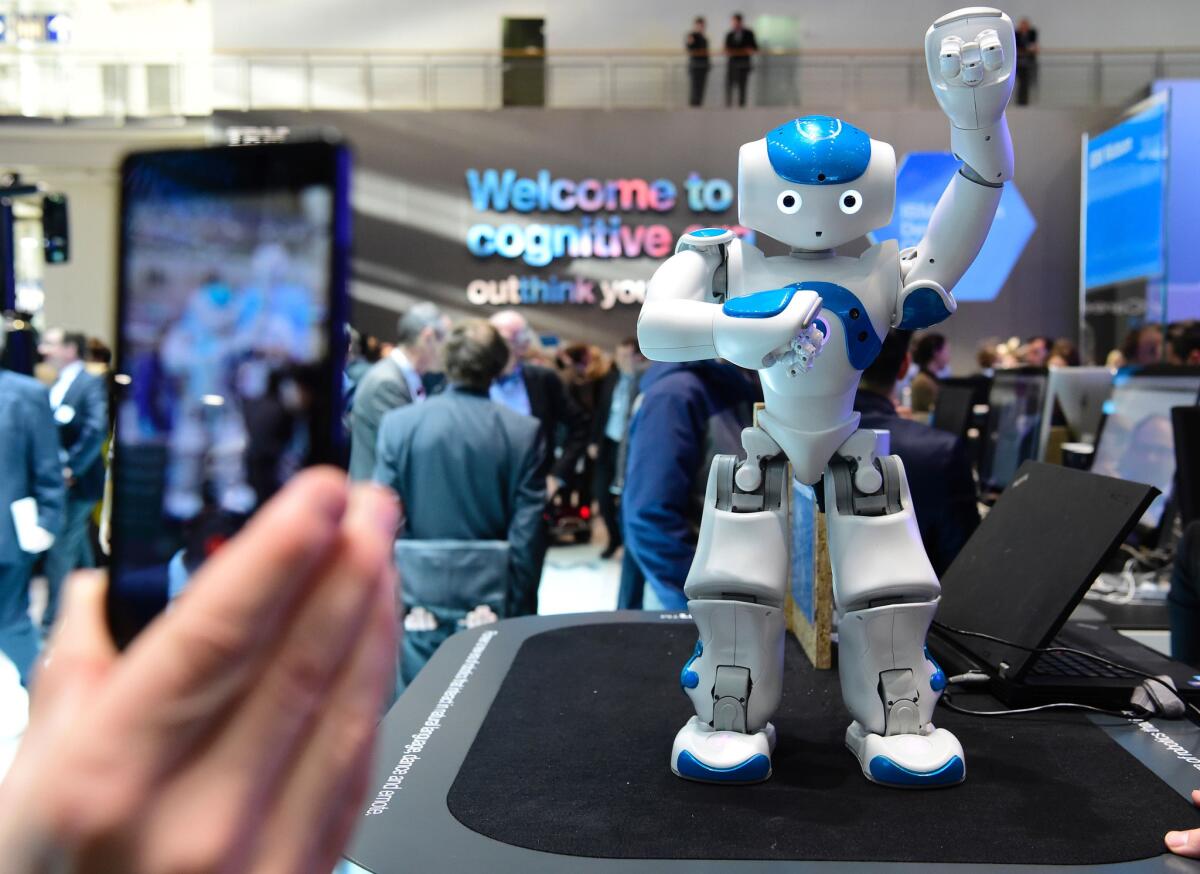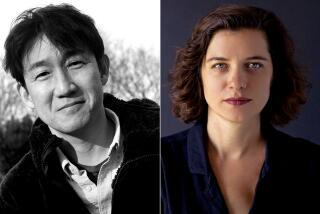Is the future award-winning novelist a writing robot?

A literary contest in Japan is accepting entries from applicants who are not human -- artificial intelligence programs and other robots, like this one from IBM.
Could a writing robot make novelists obsolete?
It might not happen anytime soon, but then again, it might. In Japan, a short novel co-written by an artificial intelligence program (its co-author is human) made it past the first stage of a literary contest, the Japan News reports.
The Nikkei Hoshi Shinichi Literary Award is named after Hoshi Shinichi, a Japanese science fiction author whose books include “The Whimsical Robot” and “Greetings from Outer Space.” Judges for the prize weren’t told which novels were written by humans and which were penned by human-computer teams.
The award is unique in that it accepts entries from “applicants who are not human beings (AI programs and others).” Novels co-written by humans and computers were submitted to the prize committee.
The Asahi Shimbun reports that one of four books co-written by an AI program made it past the first stage of the contest.
Teams of writers worked with an AI program to create the cyborg novels. The level of human involvement in the novels was about 80%, one of the professors who worked on the project said.
However, the computers did the hard work — actually writing the text.
Humans decided the plot and character details of the novel, then entered words and phrases from an existing novel into a computer, which was able to construct a new book using that information.
The prize committee didn’t disclose which of the four computer co-written entries advanced in the competition. The Japan News reports that one of the submitted books is titled “The Day a Computer Writes a Novel,” which ends with the sentences “I writhed with joy, which I experienced for the first time, and kept writing with excitement. The day a computer wrote a novel. The computer, placing priority on the pursuit of its own joy, stopped working for humans.”
(It’s not exactly Faulkner, and it probably loses something in translation.)
Novelists probably shouldn’t worry about losing their jobs just yet. Although the novel made it past the first round, it didn’t win the award.
Still, the book impressed science-fiction novelist Satoshi Hase, who said, “I was surprised at the work because it was a well-structured novel. But there are still some problems [to overcome] to win the prize, such as character descriptions.”
More to Read
Sign up for our Book Club newsletter
Get the latest news, events and more from the Los Angeles Times Book Club, and help us get L.A. reading and talking.
You may occasionally receive promotional content from the Los Angeles Times.






